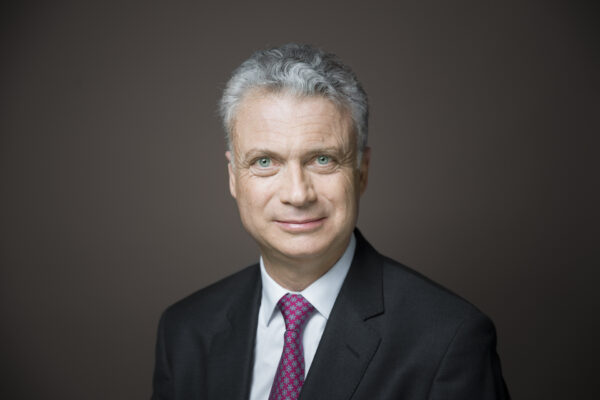Wealth managers scramble to better serve global families

Ultra-high net worth families with cross-border needs present a huge opportunity to wealth managers and firms are reshaping themselves to better serve this booming segment.
An increasingly high-profile cohort of wealthy families, requiring advice on investments, business and succession planning, is attracting attention in the finance industry. These global families include the offspring of UK-based Australian media tycoon Rupert Murdoch – famously satirised in HBO’s ‘Succession’ TV show – India’s Tata motor-manufacturing clan and Denmark’s Maersk shipping dynasty.
Many are branching out internationally through corporate projects, diversifying portfolios, marriage and foreign education needs of family members. “It is getting increasingly common to see family offices owned by cosmopolitan members opening offices in countries close to their focused activities in private assets or philanthropic deeds,” suggests Didier Duret, overseeing assets of several wealthy continental European families for Omega Wealth Management from Geneva.
The families he works with are taking advantage of developments in US technology, European energy transition, rapid pace of change in the Arabian Gulf and repositioning of south-east Asian economies within the industrial supply chain. They are setting up outposts in these jurisdictions to reflect their interests and looking for wealth managers who can service complex cross-border needs, akin to those of institutional investors.
According to Citi Private Bank, 52 per cent of family clients have members with different or multiple citizenships or residencies, with 55 per cent holding assets in multiple countries.
“There is a tremendous opportunity to serve ultra-high net worth individuals and families with homes or businesses that cross multiple jurisdictions, and we are about to see one of the largest wealth transfers over the next 20 years, with trillions of assets passed onto next generations,” says Annabel Spring, CEO, HSBC Global Private Banking and Wealth.
HSBC admits that almost two thirds (64 per cent) of its highest value entrepreneurial segment have yet to consult family members about any wealth succession plans. This shows the huge opportunity for those firms with the right business model, international reach and quality of advisers. “These families need access to an institutional level range of products and services – not just in one territory, but across multiple markets in which they live and work,” says Ms Spring.
Most banks which are reshaping themselves to better serve this booming segment report the same global trend. While asset under management mostly fell from 2022 to 2023, the slice managed for family offices continues to grow.
Around 40 per cent of the $410bn overseen by BNP Paribas Wealth Management is now handled on behalf of large families and entrepreneurs, says the unit’s Paris-based CEO, Vincent Lecomte, busy drawing up an “ambitious growth plan” for this demographic.
“Our approach is to serve these entrepreneurs and large families through personalised offers and services, so they fully benefit from expertise of all the entities in our group,” he says. This means channeling technical knowledge from corporate banking, global markets, real estate and asset management divisions of the French bank to family clients.

Appetite for private assets
Rather than investing purely in equities and bonds, these entrepreneurial families demonstrate a strong appetite for “private” or unlisted assets, reflected by their own position “at the heart of the real economy”.
Entire banks, not just their wealth management units, are reshaping offers to attract this increasingly lucrative client base. “When you listen to Jane Fraser, our bank’s global CEO, who sits in New York, speaking at her investor days, you will hear one of our most important client segments are family offices,” says Hannes Hofmann, the global head of family office business at Citi Private Bank, relaxing over a cup of tea in the US firm’s London headquarters in Canary Wharf.
The size of both challenges and opportunities is a huge one. “We sometimes work with families who have got $5bn, split between 200 members,” says Mr Hofmann. “Each one is wealthy in their own right, though none of them a billionaire. As a whole, they are pooling assets and decision making, giving them a lot more clout in the market.”
Strategic segment
This strategic segment, believe leading banks, will soon rival sovereign wealth funds, insurance companies and pension schemes in volume and value of investment-related business they generate. “There is a much less rigid structure around what they can and cannot do,” says Mr Hofmann. “There is no family office that I meet that is not interested in hedge funds, private equity, real estate and direct. The only question is how much are they investing.”
US bank Northern Trust estimates 80 to 90 per cent of global families have exposure to alternative assets. The sectors they invest in are typically related to the family’s operating business. “Ten years ago, this used to be through funds, now they are looking at direct investments with mid-tier and mid-cap names,” says Belinda Aspinall, London-based regional head of family office at Northern Trust’s $350bn wealth management franchise.
Her bank is busy setting up “networking groups” for families in different geographies to discuss mutual objectives and invest together across borders. “We have, for example, one client in Australia that can speak to one of our clients in the US, when they are looking for access to American names,” says Ms Aspinall. “They may decide to co-invest. We introduce them and they create the opportunities.”
While family offices differ in size, scope and professionalism, most will carry out three different functions for their family. These are generally accounting – including tax handling – reporting and investment management.
The challenge now for the leading banks is to service global families equally from each of their 25 to 50 global locations. They say the wealthiest families in London typically also have an office in Singapore, with further outposts in New York and Abu Dhabi often on the cards.
“When families need to get an idea of capital flows around the world, it’s helpful to have a firm in the international banking centres of London, Hong Kong, Singapore and the United Arab Emirates,” ventures Citi’s Mr Hofmann. “We are already in those places and can help people find real estate, decide which advisers to work with and who to connect with locally.”
Just as US and European family offices are opening branches in Asia, the Asian families, concerned about slowing growth in China, are relocating some members elsewhere.
“They're looking everywhere outside of China – in the US, the Middle East, west Africa and they're looking in Europe. A lot of their investments are industrial real estate-oriented,” he says. Likewise, family businesses with production facilities in China, concerned with “punitive tariffs” imposed by Washington, are “reshoring” to other territories with Chinese minorities, including Malaysia and Vietnam.
Cultural familiarity
Local knowledge is key to the choice of institution for these vast international clans. “There’s definitely a connection between cultural familiarity and investment. Of course, people are always looking to have their money managed by sophisticated investors with a strong track record. But there’s an emotional component,” says Paul Doocy, co-head at New York-based real estate specialists CP Capital. “When investors gain exposure to foreign markets through their education, business, or travel, there is a much higher chance they will choose to utilise wealth managers who operate and invest in these markets.”
But consultants and former private bankers believe the picture painted by some wealth managers represents an all too rosy version of reality. “Despite all the noise emitted by the larger groups, these families actually prefer boutique investment managers,” says Ray Soudah, founder of the MilleniumAssociates strategic advisory group in Zurich.
To complicate matters, many families spread their custom around a larger set of financial players, none of which provide a truly comprehensive service. “The ultra-high net worth investors and family offices rarely bank in just one place,” says Cara Williams, senior partner for wealth management at Mercer in London. “This means there’s always room for the exclusive private banks as well as larger global players, who can source services such as commercial loans.”
The perfect bank for the expanding global family is yet to be created, believe private banking experts. “Family offices and independent wealth managers are missing a specialist bank for them,” says Nicole Curti, CEO of wealth management consultancy Capital Y in Geneva, and former partner with the Stanhope Capital multi-family office. She also worked at family-owned private bank Lombard Odier in Geneva.
“We need a bank which can safeguard assets and do the brokerage and financing. What we don’t need is another bank that will try to sell their products to wealthy family clients,” she says. Commentators stress the difference between the small number of banks capable of working with global families and the rest of the market, focused on wealthy and mass affluent individuals.
“We’re talking high touch versus low touch, or Savile Row versus Marks & Spencer,” says Sharmil Patwa, founder of wealth consultancy OpusUna and formerly with Barclays Wealth. “To work well with families, you need a holistic view of assets and be able to provide quasi-institutional services, which you can only realistically do if you have an investment bank.”
Following the takeover of Credit Suisse by UBS, he expects further consolidation in this sector. “I think we will see divestments, which means there will even fewer 'universals' which can provide any kind of decent service to wealthy families,” says Mr Patwa. “This will become an increasingly specialised space.”





